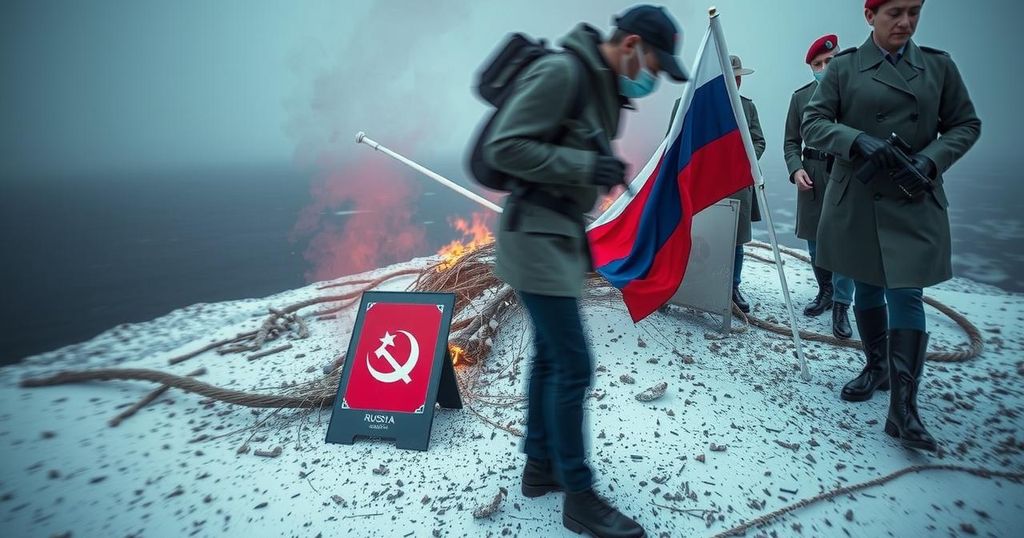The swift fall of Bashar al-Assad has severely impacted Russia’s international standing, as the Kremlin grapples with the consequences of its military support over the past decade. With Assad reportedly seeking asylum in Moscow, Russian officials express concern over the future of their military bases in Syria, amidst attempts to shift blame to the Syrian army for the regime’s collapse. This situation poses critical challenges for Russia’s geopolitical ambitions in the region.
The recent upheaval in Syria has culminated in the dramatic overthrow of President Bashar al-Assad, who has reportedly sought asylum in Moscow. This swift transition has left the Kremlin, which has heavily invested in maintaining Assad’s regime since 2015, grappling with a significant blow to its international stature. The Russian Ministry of Foreign Affairs expressed deep concern over the situation, highlighting a stark shift in dynamics within the region that has rendered Moscow’s influence precarious.
Historically, Russia’s support for Assad was not merely a regional strategy but a broader geopolitical maneuver aimed at asserting its standing as a global power, challenging Western dominance beyond former Soviet territories. Following years of military intervention and assertions of a successful campaign, the abrupt fall of Assad has undermined such objectives. This is exemplified by President Vladimir Putin’s declaration in 2017 of mission accomplished during a visit to a Russian air base in Syria, a testament to the previous confidence Moscow held in its involvement.
In terms of geopolitical interests, Russia secured vital military footholds in Syria through lease agreements for naval and air bases. As the situation evolves, critical questions arise concerning the future and security of these installations. Presently, Russian officials maintain contact with Syrians opposing Assad, suggesting a possibility of safeguarding their military positions amid unrest. Claims of these bases having been placed on heightened alert indicate Moscow’s concern, despite an assertion of no immediate threats.
The Russian media is attempting to shift the narrative, attributing blame for Assad’s fall to the Syrian army’s inability to adequately defend against rebels. This strategy seems aimed at mitigating the perception of failure surrounding Russian involvement in Syria. Commentators on state television have raised suspicions surrounding military performance and have suggested that, while Russia has invested significantly in Syria, national security concerns elsewhere may take precedence.
In summary, the fall of Bashar al-Assad marks a pivotal moment for Russia, not only as it navigates the implications for its military establishments but also as it seeks to recast a narrative of resilience and adaptability in the face of regional instability. The coming days and weeks will be vital for Moscow as it contemplates not only its standing in Syria but also its broader role on the world stage.
The fall of President Bashar al-Assad after years of Russian military support has caused a significant shift in the geopolitical landscape of the Middle East. Russia intervened in the Syrian civil war in 2015, aiming to solidify its influence and diminish Western control in the region. The strategic importance of military bases in Syria afforded Russia vital access to the Mediterranean and drew international attention, particularly from Western nations. The current developments challenge Russia’s narrative of achieving a successful military operation and confront its interests in maintaining stability in its engagements abroad.
The unexpected downfall of President Bashar al-Assad poses a compelling challenge to Russia’s international reputation and strategic interests within the Middle East. Despite their considerable military investment, the Kremlin’s authority appears to have been compromised, compelling Russian officials to reassess their involvement and priorities in the region and beyond. How effectively Russia adapts to these developments will not only reflect its diplomatic agility but also affect its position as a significant global power.
Original Source: www.bbc.co.uk







